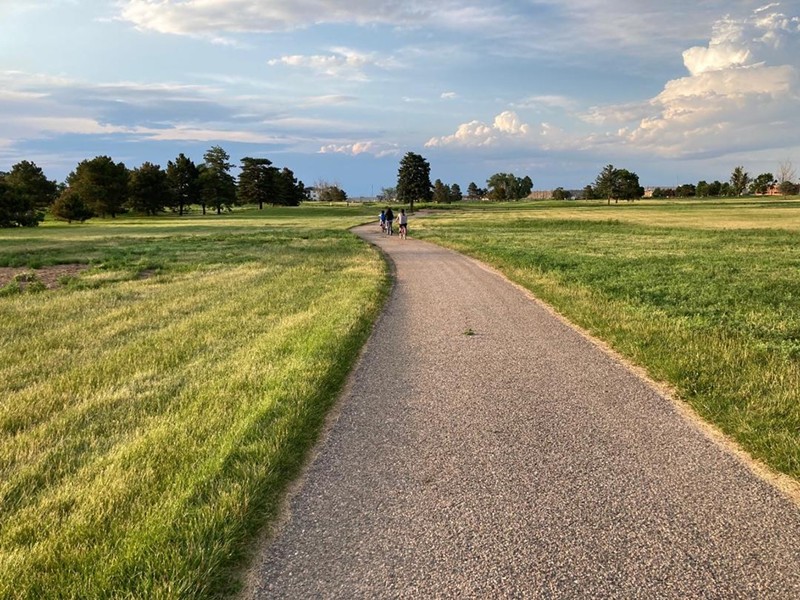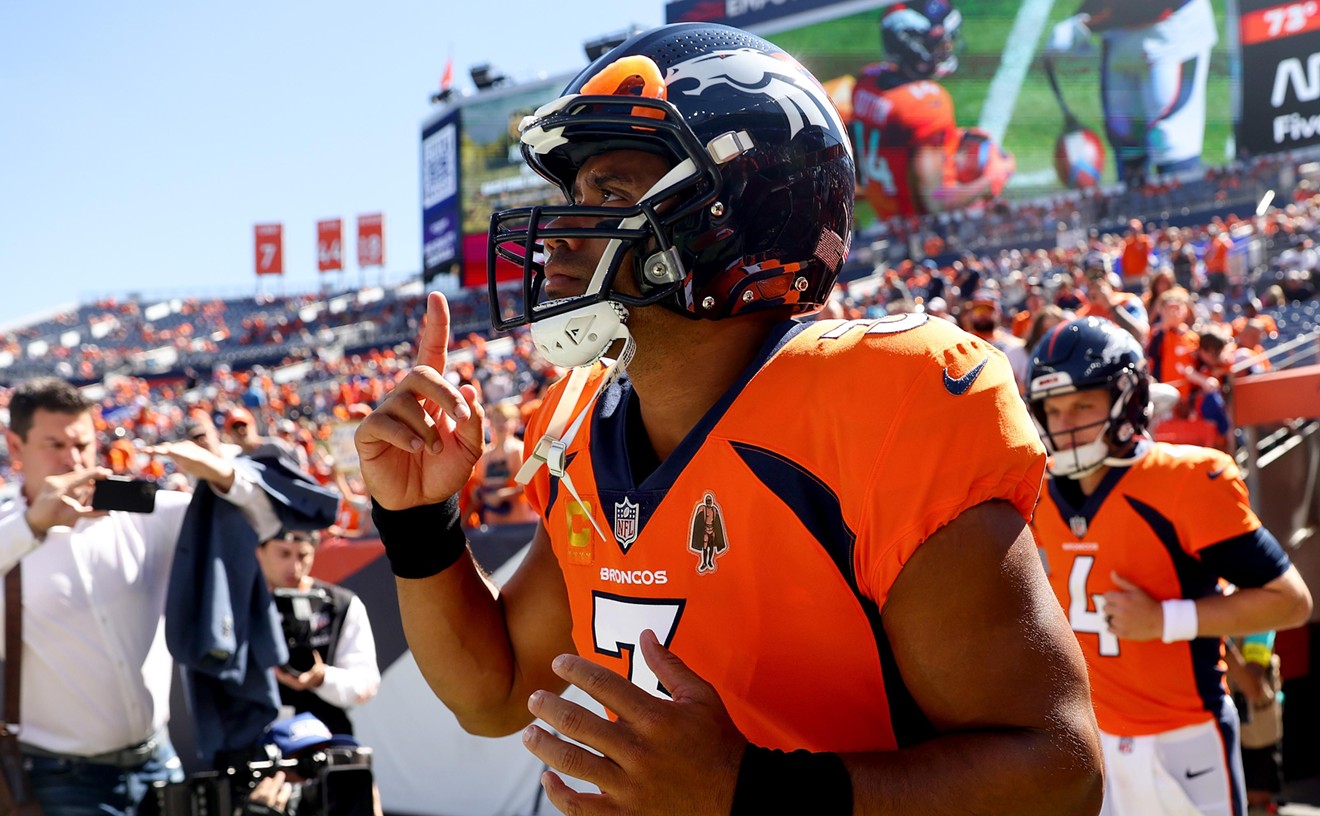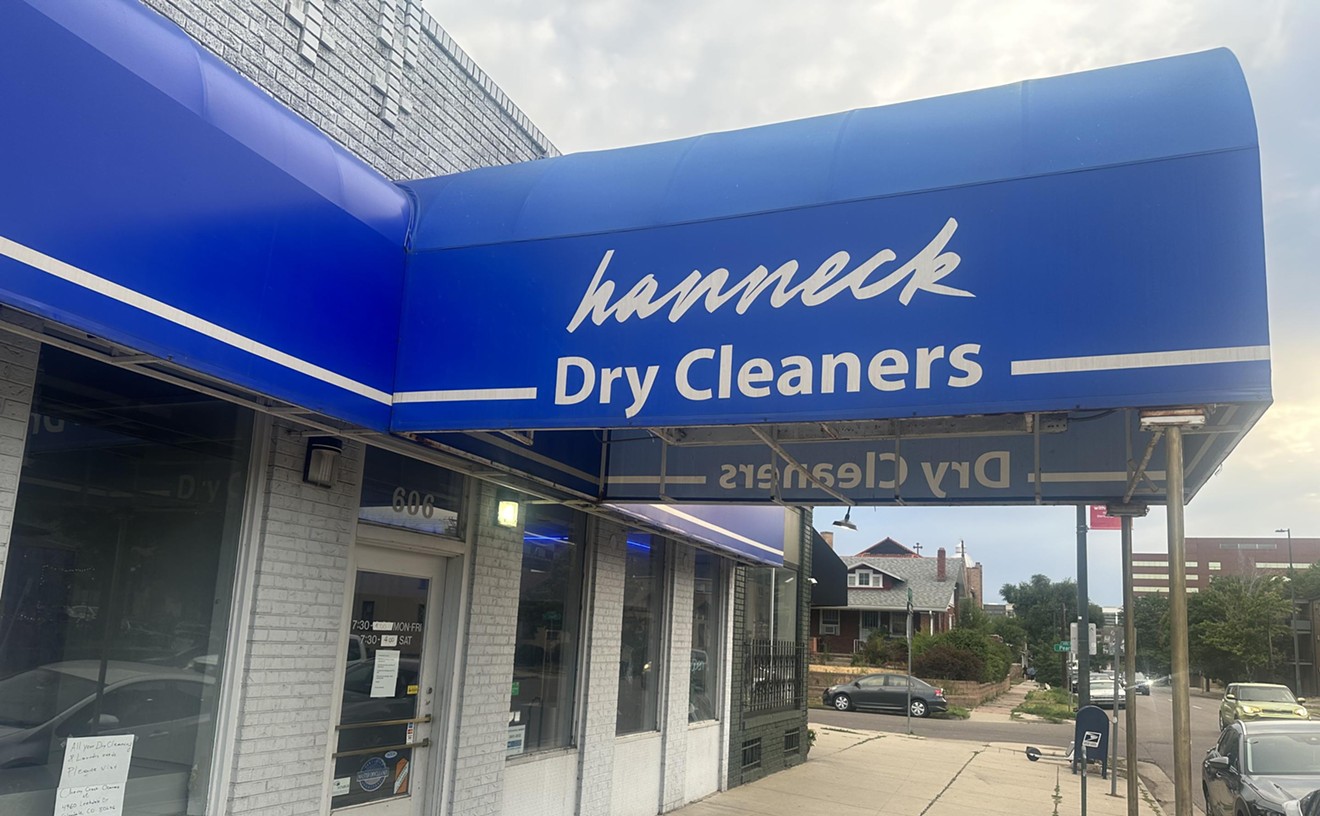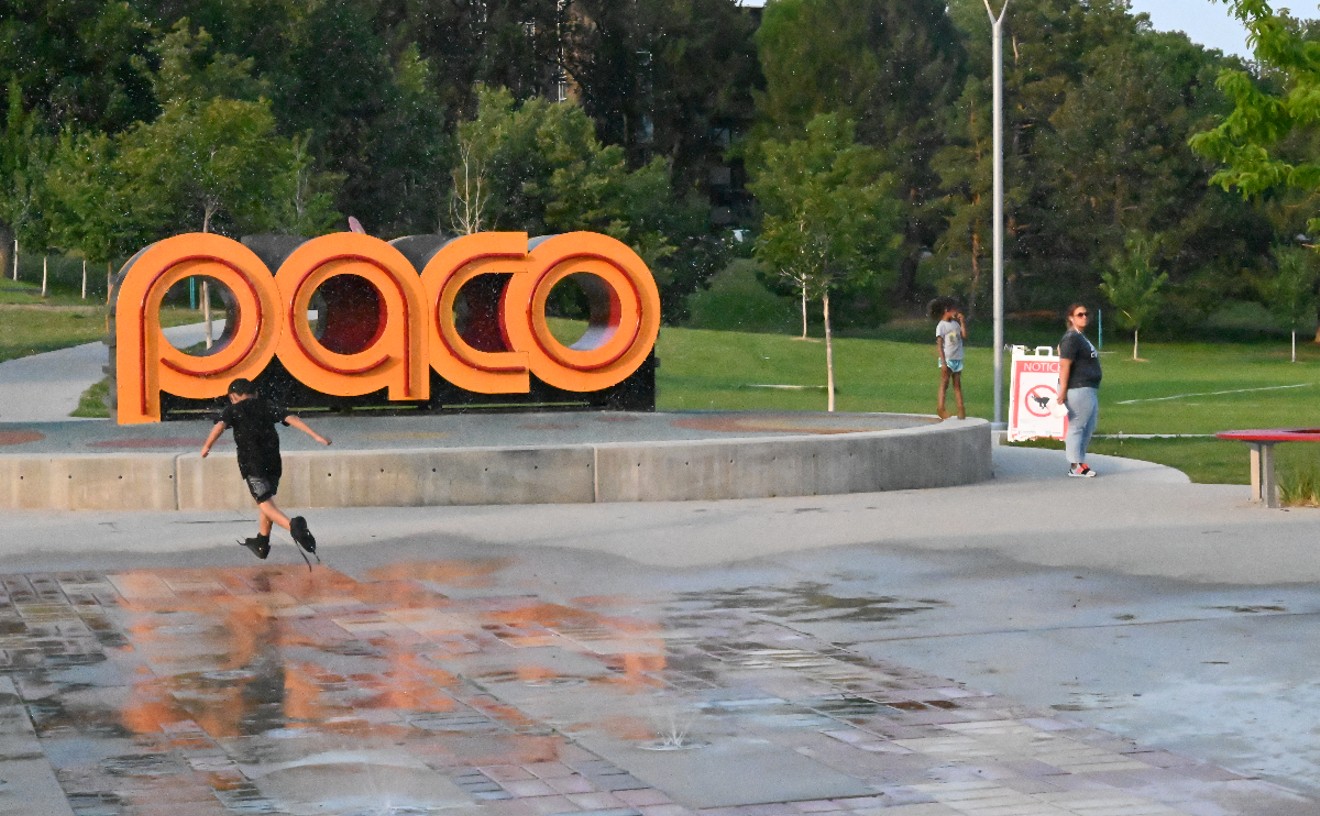While most discussion of the April 4 municipal election has focused on the mayoral race, Denver voters have other things to consider, including three ballot measures.
Two of those involve fairly dry zoning issues. But one, Referred Measure 2O, pushes a real hot button: It could determine the future of the Park Hill Golf Course. Here's a look at all three:
Referred Measure 2M
Referred to the ballot by Denver City Council, Measure 2M would remove language regarding the Board of Adjustment for Zoning Appeals from the Denver City Charter while requiring that details regarding the board's makeup and duties be laid out in an ordinance instead.
Charter changes require citywide votes, while ordinance changes simply require a vote of Denver City Council, so if this measure passes, councilmembers can sort out details about the Board of Adjustment without asking for voter approval.
"There is no plan to eliminate the Board of Adjustment. It still exists in the city zoning code. But the change allows greater flexibility in the details of the board, such as to change the terms to three years — which is more typical of boards, versus the five years required in the charter," says Councilwoman Robin Kniech, who co-sponsored this measure with Councilwoman Amanda Sandoval.
"This change paves the way for a text amendment that is already available on the city's website in draft form that would allow minor variances to the code through administrative adjustments. Larger variances would still be reviewed by the Board of Adjustment. If the charter amendment is approved, the text amendment will expand criteria for variances, such as to facilitate preservation of existing buildings, save mature trees, provide more affordable housing units or otherwise meet adopted plans of the city, criteria that are not allowed to be considered for variances under the charter language in place today," Kniech points out.
There is no organized opposition to this measure.
Referred Measure 2N
Also referred to the ballot by Denver City Council and co-sponsored by Kniech and Sandoval, Measure 2N seeks to clarify language in the Denver charter so that a legal protest by nearby property owners can only be done in the case of a zoning district appeal, and not an appeal in other types of districts.
These legal protests arise if 20 percent of property owners living within 200 feet of a property sign a petition, which changes a Denver City Council vote on rezoning to a supermajority of ten council votes, rather than the usual seven-vote majority.
According to the sponsors, the clarification is necessary because a court ruling allowed for a legal protest to be used for a historic district designation.
The language change would also clarify that only property owners living in Denver within 200 feet of the property — and not those who live outside of Denver but own property within 200 feet — can sign a protest petition.
"Just as only residents of Denver are allowed to vote, only property owners within Denver should be allowed to change the democratic voting threshold used by our local government to vote on zoning changes," says Kniech. "Those living within 200 feet but outside of Denver have freedom of speech to write, call, email or testify before council, but it is not appropriate for them to change the structure of Denver's government processes when they do not pay taxes within Denver."
There is no organized opposition to this measure.
Referred Question 2O
Referred Question 2O represents the next chapter in a long-running story.
A "yes" vote for 2O would give the City of Denver the green light to lift a conservation easement resting on the Park Hill Golf Course property, clearing the way for potential development. The development that has been proposed by Westside Investment Partners, the firm that bought the 155-acre property for $24 million from the Clayton Trust in 2019, calls for a mix of uses, including housing and retail. Some of the housing would be affordable, according to legally binding agreements already signed with the city, and land would be designated for a possible grocery store. Another 100 acres would be set aside as publicly accessible open space. Supporters of the measure say that this would lead to a major investment in Northeast Park Hill, a neighborhood that has struggled with a lack of affordable housing and amenities.
A "no" vote would ensure that the conservation easement preventing development on the Park Hill Golf Course remains in place. This could lead to several different outcomes: The City of Denver could purchase the property from Westside and create a park on the land; Westside could just return the property to its role as a golf course; or it could go back to the drawing board and propose a development with more community benefits in hopes of persuading residents to lift the easement in another vote.
The reason that lifting the conservation easement is even subject to a vote is because Save Open Space Denver, an advocacy group, pushed a ballot measure in November 2021 that would require such a vote on any city conservation easement. Westside pushed its own measure that would have exempted the Park Hill Golf Course easement if that proposal passed, but that tactic failed while the SOS Denver measure passed easily.
But this time around, Westside has collected some powerful endorsements for 2O. "Yes for parks and homes," says Heather Lafferty. CEO and executive direcor of Habitat for Humanity Metro Denver. "We are facing short- and long-term crises with our affordable housing shortage and climate change. This is a unique opportunity to address both. Repurposing a defunct golf course into an actual community asset where people can afford to live should be everyone’s priority. This is the future of Denver, and it needs to get started finally.”
But SOS Denver and other opponents are continuing to push for zero development on the property; they would like to see it turned into a municipal park. Or at least get more concessions from the would-be developer.
"Development should occur around the protected Park Hill Golf Course land — not on it," the group said in a comment submitted for the city voting guide. "People living and working in nearby neighborhoods and all Denver residents will reap the invaluable health and environmental benefits of preserving the Park Hill Golf Course land as a regional park."
[
{
"name": "Air - MediumRectangle - Inline Content - Mobile Display Size",
"component": "12017618",
"insertPoint": "2",
"requiredCountToDisplay": "2",
"watchElement": ".fdn-content-body",
"astAdList": [
{
"adType": "rectangle",
"displayTargets": "mobile"
}
]
},{
"name": "Editor Picks",
"component": "17242653",
"insertPoint": "4",
"requiredCountToDisplay": "1",
"watchElement": ".fdn-content-body",
"astAdList": [
{
"adType": "rectangle",
"displayTargets": "desktop|tablet"
},{
"adType": "rectangle",
"displayTargets": "desktop|tablet|mobile"
}
]
},{
"name": "Inline Links",
"component": "18838239",
"insertPoint": "8th",
"startingPoint": 8,
"requiredCountToDisplay": "7",
"maxInsertions": 25
},{
"name": "Air - MediumRectangle - Combo - Inline Content",
"component": "17261320",
"insertPoint": "8th",
"startingPoint": 8,
"requiredCountToDisplay": "7",
"maxInsertions": 25,
"watchElement": ".fdn-content-body",
"astAdList": [
{
"adType": "rectangle",
"displayTargets": "desktop|tablet"
},{
"adType": "rectangle",
"displayTargets": "desktop|tablet|mobile"
}
]
},{
"name": "Inline Links",
"component": "18838239",
"insertPoint": "8th",
"startingPoint": 12,
"requiredCountToDisplay": "11",
"maxInsertions": 25
},{
"name": "Air - Leaderboard Tower - Combo - Inline Content",
"component": "17261321",
"insertPoint": "8th",
"startingPoint": 12,
"requiredCountToDisplay": "11",
"maxInsertions": 25,
"watchElement": ".fdn-content-body",
"astAdList": [
{
"adType": "leaderboardInlineContent",
"displayTargets": "desktop|tablet"
},{
"adType": "tower",
"displayTargets": "mobile"
}
]
}
]












